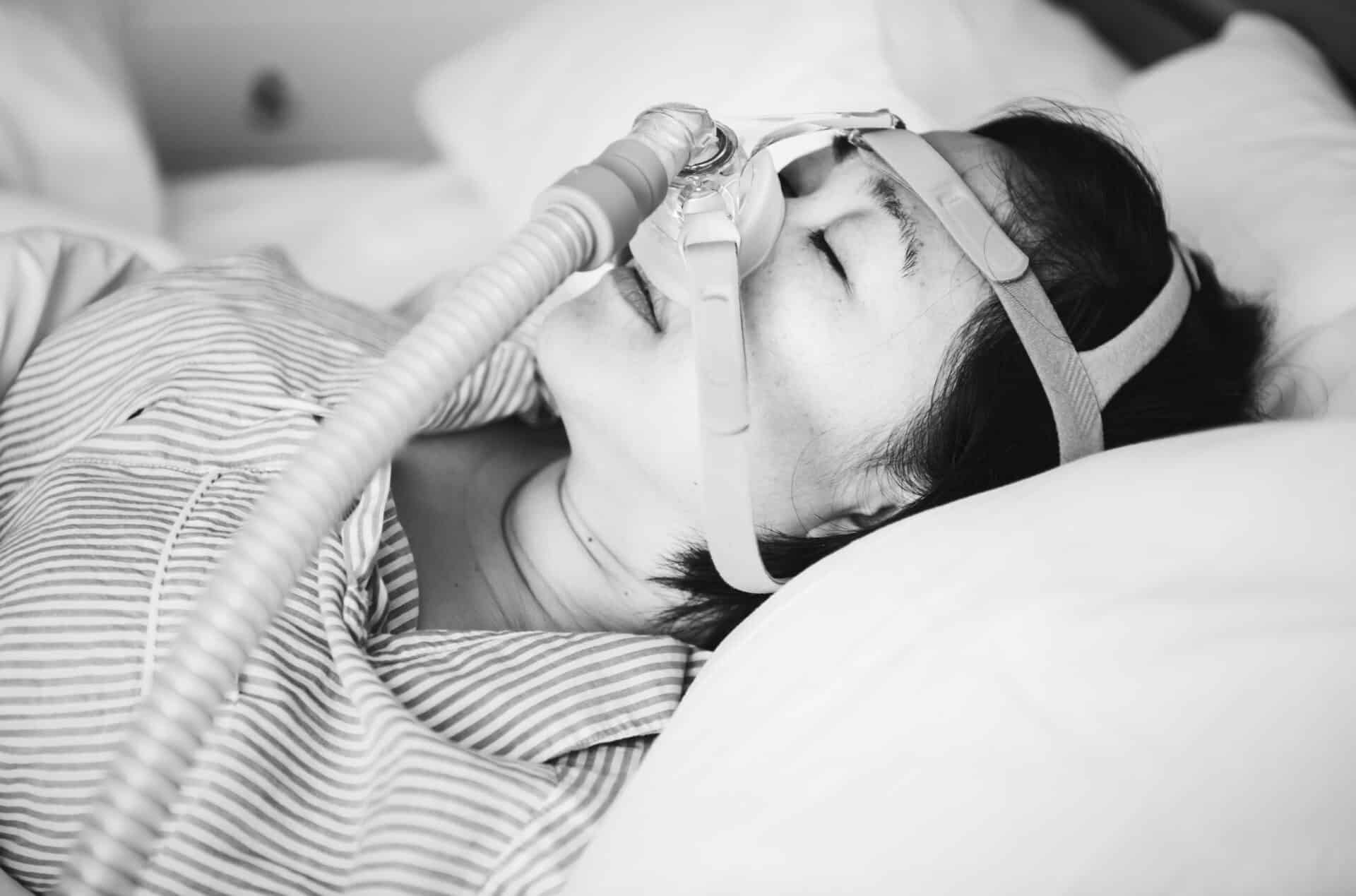Leah Bucholz analyzes an often-overlooked aspect of sleep disorders—central sleep apnea (CSA). While obstructive sleep apnea dominates discussions, there is a subset of veterans who contend with CSA, or sometimes a combination of both central sleep apnea and obstructive sleep apnea. There are intricacies of central sleep apnea, its evaluation, and the potential connection of central sleep apnea and traumatic brain injury in veterans disability.

Understanding Central Sleep Apnea
Differentiating Central Sleep Apnea from Obstructive Sleep Apnea
Before exploring the relationship between central sleep apnea and traumatic brain injury in veterans disability, it’s essential to understand the fundamental differences between central and obstructive sleep apnea. Obstructive sleep apnea typically results from physical blockages or obstructions in the airway, often linked to factors like obesity and excess body tissue. In contrast, central sleep apnea, according to the American Academy of Sleep Medicine, is a breathing disorder often arising from issues in the brain, leading to a decrease or cessation of breathing effort during sleep. Unlike obstructive sleep apnea, CSA is less common and is not caused by airway blockage.
Diagnosis through Polysomnogram
Central sleep apnea is diagnosed through a polysomnogram, commonly known as a sleep study. This involves monitoring various sleep patterns, including obstructions, hypopneas, and central apneas, to assess the overall sleep condition. The brain’s failure to send appropriate signals for breathing is a characteristic feature of CSA, which can be identified through this comprehensive sleep study.
Can Veterans Get Connected for Central Sleep Apnea?
Direct Service Connection
Veterans diagnosed with sleep apnea during active duty—be it central or obstructive—can often establish a direct service connection. However, complexities arise for reservists and National Guardsmen, especially those without prolonged periods of active duty. Chronic medical conditions, including sleep apnea, are challenging to attribute directly to periods of limited active duty, necessitating careful examination and potentially consultation with legal professionals like attorneys, accredited agents or Veterans Service Organizations (VSOs).
Traumatic Brain Injury (TBI) and Central Sleep Apnea
Exploring the Link
Traumatic Brain Injury (TBI) is a prevalent concern among service members, categorized into mild, moderate, and severe cases. Veterans who have suffered head injuries may experience various associated conditions, including seizures, sleep impairments, increased stroke risk, tinnitus, depression, anxiety, headaches, and vertigo. Notably, central sleep apnea can be one of the sleep disorders commonly diagnosed following TBI.
Research Articles Supporting the Connection
Several research articles highlight the connection between traumatic brain injury and central sleep apnea. Leah refers to studies such as “Sleep Apnea and Traumatic Brain Injury: Understanding Its Impact on Executive Function” (2013) and “A Review of Sleep Disturbances Following Traumatic Brain Injury” (2018). Additionally, publications in PubMed emphasize the increased frequency of sleep-related breathing disorders, including both obstructive sleep apnea and central sleep apnea, after traumatic brain injury.
Consideration of Neck Injuries
Furthermore, neck injuries are implicated in both obstructive sleep apnea and central sleep apnea. Even in the absence of a diagnosed TBI, neck injuries can be relevant, and the mechanisms involved can contribute to central sleep apnea. Understanding the interplay between neck injuries and CSA adds another layer to the assessment of veterans’ health.
Veterans Disability Ratings for Sleep Apnea
Leah briefly touches upon disability ratings for sleep apnea, emphasizing that the current rating system may be subject to change. As of now, veterans with sleep apnea are generally rated at zero percent if the disorder is present but not causing significant issues, 30 percent for daytime sleepiness without the need for breathing assistive devices, and 50 percent if a device like a CPAP is necessary. Ratings can go up to 100 percent for severe cases with chronic respiratory failure or related complications.
Conclusion
In conclusion, the relationship between central sleep apnea and traumatic brain injury in veterans is a nuanced and complex one. Research articles and medical literature provide valuable insights into the connections between head injuries and sleep disorders. Veterans facing these challenges are encouraged to explore these studies, discuss them with their healthcare providers, and seek medical opinions to support their disability claims.
Also read: Coronary Artery Disease and Obesity in Veterans Disability
At Prestige Veteran Medical Consulting, a veteran-owned company, we specialize in Independent Medical Opinions (IMOs) known as Nexus letters.
Our purpose is to empower YOU, the veteran, to take charge of your medical evidence and provide you with valuable educational tools and research to guide you on your journey.
Understanding the unique challenges veterans face, our commitment lies in delivering exceptional service and support.
Leveraging an extensive network of licensed independent medical professionals, all well-versed in the medical professional aspects of the VA claims process, we review the necessary medical evidence to incorporate in our reports related to your VA Disability Claim.
Prestige Veteran Medical Consulting is not a law firm, accredited claims agent, or affiliated with the Veterans Administration or Veterans Services Organizations. However, we are happy to discuss your case with your accredited VA legal professional.













